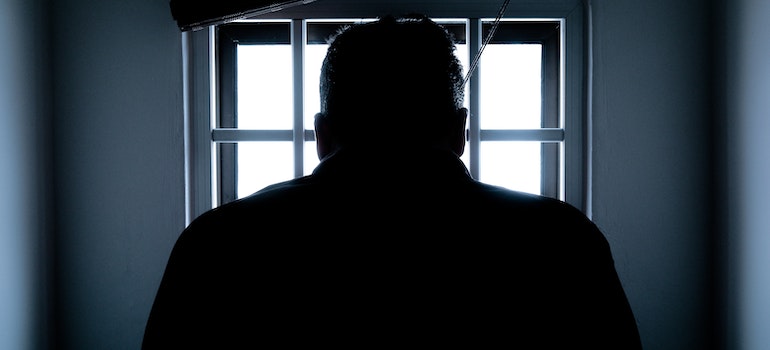In Clarksburg, West Virginia, there’s a hidden problem beneath the charming scenery of rolling hills and quiet streets: addiction. Many people in the local prison are struggling with it. Behind the calm exterior, a growing crisis has trapped numerous lives in a cycle of substance abuse and jail time. Amidst this despair, there’s a glimmer of hope coming from rehab centers in West Virginia. Let’s explore the impact of addiction on the local prison population in Clarksburg, WV, and how rehab centers are working to address this crisis.
Substance Abuse and Its Toll on Clarksburg, WV
Substance abuse is a serious problem in Clarksburg, West Virginia. It has affected many lives and communities. The issue of addiction has spread throughout the peaceful hills and neighborhoods, affecting everyone. The region is dealing with a complex addiction crisis involving opioids and methamphetamines. Opioid painkillers, initially prescribed to help, have turned into a devastating epidemic that affects people from all backgrounds. At the same time, the spread of methamphetamines has led to more addiction cases and contributed to the local prison population.

In response to this harrowing scenario, rehab centers in Clarksburg WV provide a lifeline to those entangled in the clutches of addiction. These facilities, driven by a dedication to healing, offer a chance for individuals to break free from the chains of substance abuse and reclaim their lives.
How Addiction Fuels Criminal Behavior in Clarksburg, WV
Addiction doesn’t just affect families and opportunities; it’s also linked to criminal activity in Clarksburg. This connection creates a complicated cycle of despair, as seen in:
- Drug-Related Offenses—Desperation for substances often drives individuals to engage in drug-related crimes such as possession, distribution, and trafficking, entangling them in the legal system.
- Property Crimes—Addicts might resort to theft, burglary, or other property crimes to fund their habits, leaving a wake of victimization in their path.
- Involvement with Law Enforcement—The collision of addiction and criminal behavior frequently leads to encounters with law enforcement, resulting in arrests and potential incarceration.
As addiction tightens its grip, individuals find themselves ensnared in a cycle where criminality begets incarceration, and incarceration, in turn, feeds back into a cycle of substance abuse. The impact of addiction on the local prison population in Clarksburg is undeniable, with a significant portion imprisoned due to addiction-related offenses.
The Intersection of Addiction and Incarceration in Clarksburg, WV
The stark impact on incarceration rates tells a disheartening tale, revealing the profound connection between addiction and the criminal justice system.

Recent data and statistics paint a grim picture of the local prison population’s relationship with addiction. According to the latest available figures from the Clarksburg Department of Corrections:
- Approximately 65% of the local prison population in Clarksburg is incarcerated due to offenses directly related to substance abuse and addiction.
- Incarceration rates for other offenses, such as property crimes or non-addiction-related offenses, stand at around 20-25%.
In the face of these daunting statistics, West Virginia’s heroin rehab centers emerge as essential allies in the battle against addiction-driven incarceration. These facilities provide not only a chance at recovery but also a path to breaking the cycle that leads individuals from substance abuse to imprisonment.
Overcrowding and Strain on the Prison System
The impact of addiction on the local prison population in Clarksburg, WV, extends beyond statistical figures. It manifests in the tangible strain on the prison system’s resources, facilities, and staff. The surge in inmates grappling with addiction issues has created a dire situation of overcrowding within correctional institutions.
Also, rehabilitation and counseling programs designed to aid inmates on the path to recovery face resource shortages, hampering their effectiveness. Inadequate facilities further exacerbate the problem, as the demand for specialized treatment for addiction often outpaces the prison system’s capacity.
Correctional officers and staff members find themselves grappling with the unique challenges posed by inmates battling addiction. Monitoring and addressing withdrawal symptoms, providing emotional support, and managing behavioral issues require additional training and resources. This strain on staff can lead to burnout and hinder their ability to maintain a safe and secure environment for both inmates and personnel.
Recidivism Rates and the Complex Struggle of Rehabilitation in Prisons
The impact of addiction on the local prison population in Clarksburg, WV, echoes far beyond initial incarceration. It reveals a pattern of recidivism that poses significant challenges to rehabilitation efforts. These challenges include:
- Inadequate Rehabilitation Programs—Limited resources and facilities hinder the development of comprehensive rehabilitation programs tailored to address addiction issues effectively.
- Lack of Continuity—Disconnection between in-prison and post-release support can lead to a breakdown in the rehabilitative process. Additionally, it makes it more difficult for individuals to sustain their recovery.
- Stigma and Limited Opportunities—Former inmates face social stigma and barriers when attempting to reintegrate into society, making it challenging to access stable housing, employment, and support networks.
- Mental Health Considerations—Many individuals battling addiction also struggle with underlying mental health issues. Without proper treatment, these conditions can contribute to relapse and re-offending.
- Follow-Up and Aftercare—The absence of robust aftercare programs and follow-up mechanisms increases the likelihood of relapse and repeat involvement in the criminal justice system.
To break the cycle of repeat offenses, we need to make a collective effort to tackle these issues comprehensively. This means improving rehabilitation methods and offering extensive support to individuals trying to rebuild their lives after being in prison.
Physical Health and Mental Health in Clarksburg’s Prison Population
The impact of addiction on the local prison population in Clarksburg, WV, involves various health and mental health issues. This requires a specialized approach. Substance abuse doesn’t just lead to criminal behavior; it also seriously affects the physical and mental well-being of those trapped in addiction.

Detoxification and withdrawal are complex processes that require expert care. Without proper medical attention, withdrawal can make the journey to recovery even harder, making the addiction cycle worse.
Many inmates also have mental health issues like depression and anxiety alongside addiction, which require specific therapeutic treatments. Offering complete medical and psychological support during withdrawal and treating co-occurring disorders can bring hope during tough times.
Community Impact and Reintegration
The influence of addiction on the local prison population in Clarksburg, WV, casts its shadow on the broader community during the process of reintegration. As former inmates reenter society, their journey holds significance for the entire community. The echoes of addiction ripple through Clarksburg’s social fabric as individuals attempt to rebuild their lives post-incarceration. The challenge lies not only in personal transformation but also in the community’s acceptance and support of these individuals.

Reintegration is a formidable path with many obstacles. The stigma attached to criminal records limits access to housing, employment, and social networks. This contributes to a sense of isolation and a potential return to old habits. Facilitating successful reintegration requires community efforts, providing education, mentoring, and support to create a conducive environment for transformation.
Strategies for Confronting Addiction
Through collaborative initiatives, Clarksburg can redefine its approach to addiction, viewing it not solely as a criminal issue but as a societal concern that requires empathy, understanding, and comprehensive intervention.
Drug Rehabilitation Programs
The impact of addiction on the local prison population in Clarksburg, WV, demands a multi-pronged approach centered on strategies that address the root causes of addiction within the prison system itself.

Counseling Services
Comprehensive counseling services play a pivotal role in addressing the psychological aspects of addiction and its aftermath. Cognitive Behavioral Therapy for substance use disorders offers inmates coping mechanisms and strategies to rewire negative thought patterns. Additionally, group therapy sessions provide a platform for individuals to share experiences, fostering empathy and camaraderie.
Collaboration for Comprehensive Solutions
True progress necessitates a collective effort involving law enforcement, healthcare providers, and community organizations. Law enforcement can divert non-violent offenders to treatment instead of incarceration, easing the burden on the prison system. Healthcare providers bring expertise in designing tailored rehabilitation programs, while community organizations offer post-release support systems, including housing and employment opportunities.
Diversion Programs and the Quest for Alternative Solutions
The profound impact of addiction on the local prison population in Clarksburg, WV, urges a reevaluation of punitive approaches. Acknowledging addiction as a serious disease marks a pivotal shift in perspective. Rather than relying solely on incarceration, diversion programs offer a proactive strategy that can redirect individuals toward treatment and recovery, ultimately aiming to reduce the number of addiction-related incarcerations.

The potential benefits of diversion programs and alternative solutions are numerous, two of the most important being:
- Alleviating the strain on the prison system, freeing up resources for more serious criminal cases
- Addressing the root causes of addiction, fostering long-term change in individuals’ lives and subsequently in the community
Embracing alternative solutions acknowledges the complexity of addiction and its far-reaching impact beyond legal implications. Clarksburg has the opportunity to redefine its approach by collaborating with law enforcement, healthcare providers, and community organizations to develop comprehensive diversion programs.
The Role of Community Support and Aftercare in Overcoming Addiction
The far-reaching impact of addiction on Clarksburg’s local prison population necessitates a collaborative effort. Therapy can help a lot in the journey toward recovery, but community support is also crucial, serving as a lifeline for individuals transitioning from prison back to society. Establishing a network of empathetic individuals and organizations can counter the isolation often felt by former inmates. This support network not only aids reintegration but also provides a buffer against relapse. The significance of aftercare cannot be overstated.
Confronting Addiction in Clarksburg
The impact of addiction on the local prison population in Clarksburg, WV, highlights the complexity of this crisis. It affects the prison system and has broader effects on the community. Despite these challenges, there’s hope. To address this issue, Clarksburg needs a comprehensive approach that goes beyond punishment to include proactive solutions. As the town deals with addiction, it can also promote empathy, understanding, and resilience.



